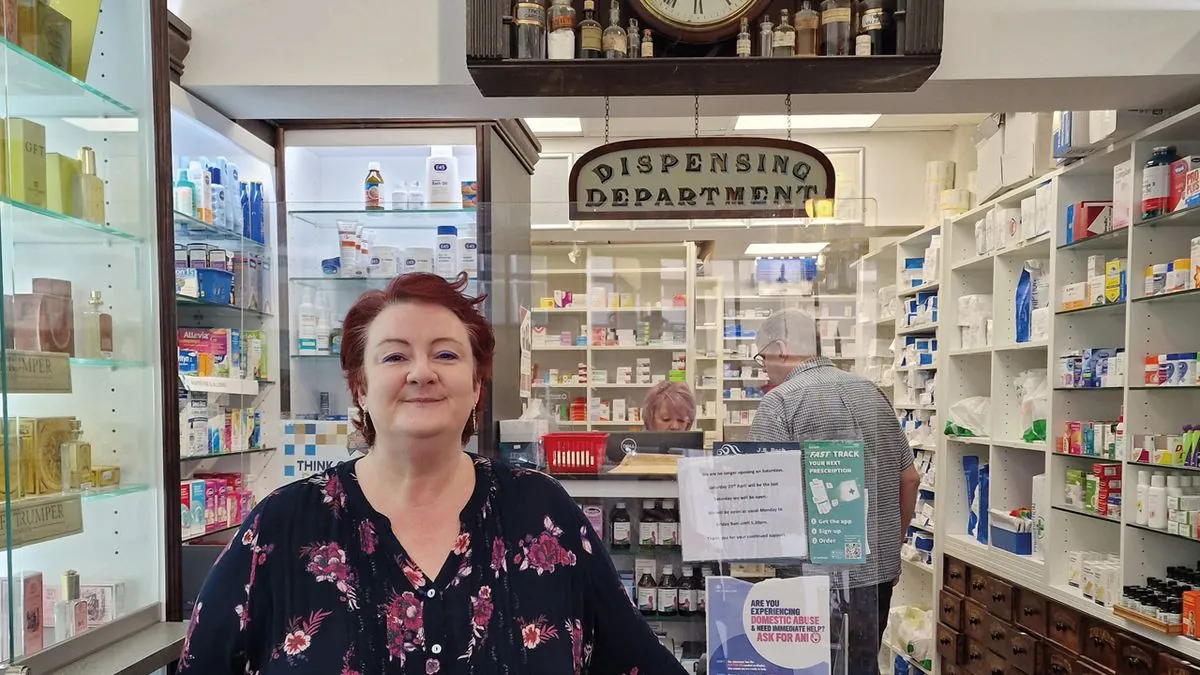English Pharmacies Face Crisis: One in Six at Risk of Closure
Community pharmacies in England are grappling with financial pressures, potentially leading to widespread closures. Patient care is already affected, with medicine shortages and longer wait times reported.

The community pharmacy sector in England is facing a severe financial crisis, with potentially far-reaching consequences for patient care. According to a recent report, one in six pharmacies could vanish from high streets within a year, exacerbating existing challenges in medication access and distribution.
Community Pharmacy England, representing approximately 10,500 community pharmacies, conducted a survey of over 900 pharmacy owners. The results paint a grim picture of the sector's financial health. Two-thirds of premises reported financial losses, while 16% expressed doubt about their ability to survive the year.
The crisis stems from various factors, including a significant reduction in NHS funding. Since 2015, real-term funding has decreased by 30%, placing immense pressure on pharmacies. This financial strain coincides with an increased workload, as community pharmacies now dispense 56% more prescriptions than in 2006.

Patients are already experiencing the impact of these challenges. More than half of the surveyed pharmacies reported a decline in service quality. Issues include:
- Difficulty sourcing certain medicines
- Longer prescription dispensing times
- Delays in responding to patient inquiries
- Extended wait times at pharmacy counters
The situation has led to what some describe as "pharmacy bingo," with patients forced to search multiple locations for needed medications. This problem is compounded by global supply chain issues affecting the availability of drugs for conditions such as ADHD, epilepsy, and diabetes.
Janet Morrison, chief executive of Community Pharmacy England, emphasized the severity of the situation:
"Community pharmacies are under severe financial strain, with widespread profitability concerns. Many are losing money, and several are uncertain about their ability to survive another year. These pressures are negatively affecting patient care, resulting in longer waits for prescriptions, reduced time with patients, and limited access to essential healthcare services."
The current crisis is part of a broader trend of pharmacy closures in England. Since 2015, over 1,500 pharmacies have shut their doors, leaving just 10,054 operating as of 2024. Major chains have also been affected, with Lloyds Pharmacy exiting the market in 2023 and Boots consolidating 300 stores.
Patient representatives have voiced concerns about the potential impact of further closures. William Pett of Healthwatch England noted that existing closures have already eroded public confidence in pharmacy services and called for urgent action to address medicine shortages and support struggling pharmacies.
The UK government has acknowledged the challenges facing the sector. A Department of Health and Social Care spokesperson stated: "This Government inherited a broken NHS and pharmacies have been neglected for years. We are monitoring closures closely." The government plans to expand the role of pharmacies, including accelerating the rollout of independent prescribing.
As the crisis unfolds, it's worth noting that pharmacies have played a crucial role in UK healthcare for centuries. The first pharmacy in England was established in 1345, and the profession has continually evolved to meet changing healthcare needs. The current challenges come at a time when pharmacists' roles have expanded significantly, particularly in the wake of the COVID-19 pandemic.
The future of community pharmacies in England remains uncertain. However, their importance in providing accessible healthcare services and supporting the NHS is clear. As negotiations for a new contract with the government approach, the sector hopes for increased funding and support to ensure its survival and ability to continue serving communities across the country.


































